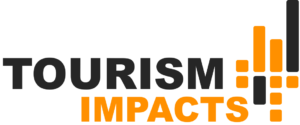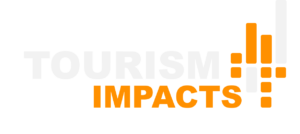Tourism is traditionally defined as “a social, cultural and economic phenomenon which entails the movement of people to countries or places outside their usual environment for personal or business/professional purposes” (UNWTO, 2021). At the same time, smart tourism can be explained as the application of any kind of information and communication technologies in any area of the tourism sector (Shafiee et al., 2019). Modern tourism is highly dependent on information and communication technologies that are increasingly involved in tourism marketing, providing customer experience, revenue management, etc. (Buhalis & Amaranggana, 2015).
Smart tourism is aimed at increasing the competitiveness of tourist destinations, providers, attractions, and activities by increasing their quality, efficiency, and sustainability (Harrison et al., 2010). Shafiee et al. (2019) suggest that the smart tourism concept “is based upon complex systems, environments and networks and technological infrastructure supported by ICT” (p. 289). Smart tourism is also described as a social phenomenon that might enhance and personalize tourism experiences through using different technologies and applications (Neuhofer, Buhalis, & Ladkin, 2015). Tourists have an opportunity to co-create the value of tourism products by uploading photos, providing reviews, or using crowdsourcing platforms.
Gretzel et al. (2015) differentiate three major components and layers of smart tourism related to collecting, exchanging, and processing the data: smart experiences, smart business ecosystems, and smart destinations. The smart experience layer is about providing technology-mediated tourists’ experiences, while the smart business ecosystem helps to create the exchange of different tourism resources. Smart business suggests collaboration of different tourism stakeholders including tourism providers, intermediaries, online travel agencies, destination marketing and management organizations, and other parties. The main characteristic of smart destinations is integrating information and communication technologies into the physical infrastructure of destinations. Among the previously described examples of smart destinations are Amsterdam, Singapore, Abu Dhabi, and several US cities, including Austin, Denver, Pittsburgh, and San Francisco (Hotel Management, 2021). For example, the website Amsterdam Smart City describes several smart solutions, such as navigation applications, smart energy solutions, online assessment tools, as well as the innovation platform developed to connect people in tomorrow’s cities (Amsterdam Smart City, 2021). Another potential implication of smart tourism technologies for tourist destinations is crowd management. Several tracking techniques can help to receive information on visitors’ behavior based on the analysis of mobile positioning data, geolocation devices, user-generated data, geo-referenced photos, and the analysis of specific sites in a tourist destination (Padrón-Ávila & Hernández-Martín, 2020). Using the space-time information will help to explore visitors’ movement patterns, tourism density, congestion issues, and other tourism impacts at different parts of destinations.
References
Amsterdam Smart City (2021). Amsterdam Smart City. https://amsterdamsmartcity.com/about
Buhalis, D., & Amaranggana, A. (2015). Smart tourism destinations enhancing tourism experience through personalisation of services. In Information and communication technologies in tourism (pp. 377-389). Springer, Cham.
Gretzel, U., Sigala, M., Xiang, Z., & Koo, C. (2015). Smart tourism: Foundations and developments. Electronic Markets, 25(3), 179-188.
Hotel Management (2021). How smart cities are leading the way to smart tourism. https://www.hotelmanagement.net/tech/how-smart-cities-are-leading-way-to-smart-tourism
Neuhofer, B., Buhalis, D., & Ladkin, A. (2015). Smart technologies for personalized experiences: a case study in the hospitality domain. Electronic Markets, 25(3), 243-254.
Padrón-Ávila, H., & Hernández-Martín, R. (2020). How can researchers track tourists? A bibliometric content analysis of tourist tracking techniques. European Journal of Tourism Research, 26, 2601-2601.
Shafiee, S., Ghatari, A. R., Hasanzadeh, A., & Jahanyan, S. (2019). Developing a model for sustainable smart tourism destinations: A systematic review. Tourism Management Perspectives, 31, 287-300.








